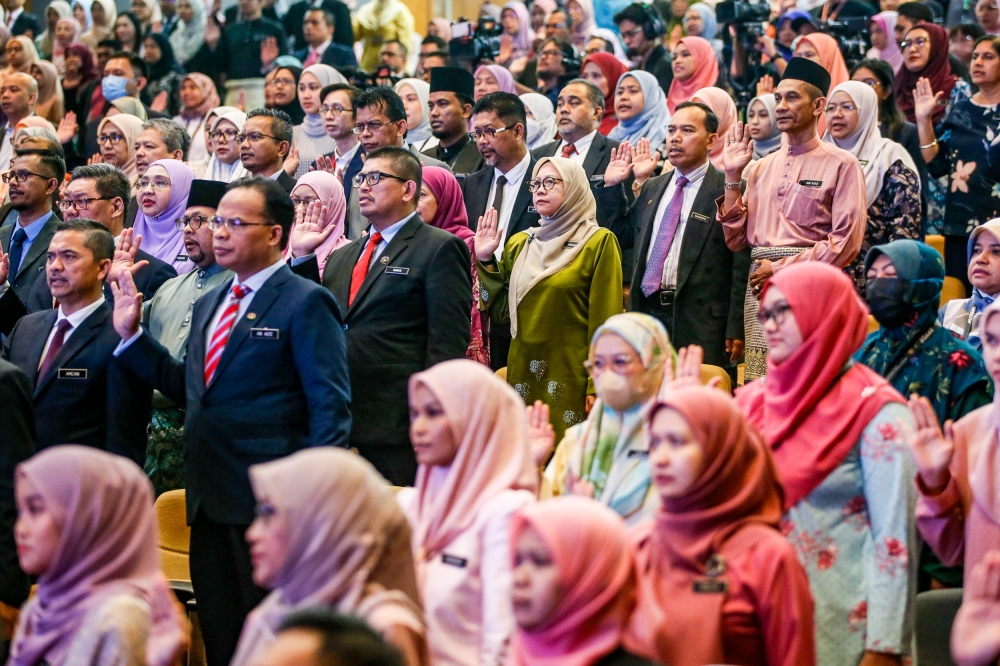DECEMBER 2 — The Johor civil service has been in the news recently. Changes such as the return to a Saturday-Sunday weekend and the proposed four-and-a-half-day work week in government agencies have sparked media interest.
These changes are exciting, but they should not distract us from another important issue —women’s participation in the civil service. According to the Department of Statistics, women make up nearly half of Malaysia’s population (48.93 per cent in 2023). Despite this, they hold fewer than 30 per cent of executive positions in government. While these numbers reflect a national trend, it is likely that Johor mirrors this imbalance based on anecdotal experience.
This underrepresentation isn’t just about numbers — it’s about missed opportunities. Women bring unique perspectives to decision-making. They often focus on policies that benefit families, education, healthcare, and community welfare. These areas are critical to building a stronger society, and having more women in leadership roles can make a real difference.
Research also shows that women are more likely to lead with empathy and are more collaborative. These leadership styles foster better teamwork and transparency, which are essential in public service.

Based on personal experience as a wakil rakyat who has to often deal with bureaucrats, I must say that having gender-diverse organisations is definitely a plus point.
A more inclusive civil service can also boost the economy. When more women join the workforce, productivity rises, and economic growth accelerates. Gender diversity isn’t just good for society, it’s smart economics.
Some may wonder if inclusivity compromises meritocracy. On the contrary, inclusivity enhances meritocracy by ensuring that no talent is overlooked due to outdated biases. A more diverse and inclusive civil service strengthens public service delivery.
Yet, challenges remain. Women continue to face barriers to leadership, whether due to outdated mindsets, a lack of mentorship, or rigid workplace policies.
This is where Johor can make a difference. Johor has always been a leader in governance. Under Sultan Sir Abu Bakar in the late 19th century, Johor became the first Malay state to modernise its civil service. Today, we still see the legacy of his reforms in the institutions and systems we rely on. It’s time to carry this legacy forward by championing gender inclusivity.
So, what can we do? First, we need clear goals. The Johor government can set targets to increase women’s representation in senior roles, with specific timelines to measure progress. Second, mentorship programmes can play a key role. Women in junior positions need guidance and support to rise to leadership roles. Experienced leaders can provide this mentorship, creating a pipeline of talented women ready to lead.
Third, the government should explore flexible work policies. Balancing work and family responsibilities remains a challenge for many women to break the glass ceiling. By implementing policies that support work-life balance, more women will feel encouraged to join and remain in the workforce.
Doing these does not mean that we compromise on meritocracy. In fact we should foster even greater meritocracy in the civil service to enhance the public delivery system.
A civil service that values diversity and meritocracy is better equipped to serve the needs of all its citizens.
As an ADUN, I see firsthand the potential of women in leadership. Their contributions are invaluable, and their voices must be heard. But this isn’t just about equality — it’s about building a better society for everyone. When we empower women, we empower families, communities, and the economy.
Johor has the opportunity to lead by example. By addressing gender gaps in the Johor Civil Service, we can inspire other states to follow. This is something I have brought up during my debate at the State Assembly sitting recently. Let’s seize this moment to ensure that the civil service reflects the diversity, talent, and aspirations of our people.
* Ng Kor Sim is the state assemblywoman for Jementah, Johor.
** This is the personal opinion of the writer or publication and does not necessarily represent the views of Malay Mail.





















